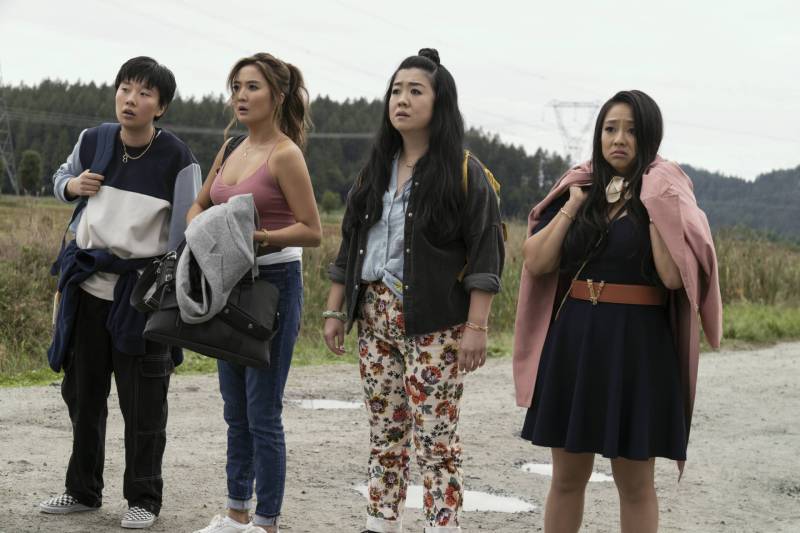The script, written by Cherry Chevapravatdumrong and Teresa Hsiao, is heavy on contrivance: Thanks to Lolo’s meddling, Audrey winds up putting her work on hold and trying to track down her birth mother. But the director Adele Lim keeps the twists and the laughs coming so swiftly that it’s hard not to get swept up in the adventure.
The comedy kicks up a notch once Audrey looks up her old college pal Kat, who’s now a successful actor on a Chinese soap opera. Kat is played by Stephanie Hsu, who, after her melancholy breakout performance in Everything Everywhere All at Once, gets to show off some dazzling comedic chops here.
Like Lolo, with whom she initially butts heads, Kat has had a lot of sex, something she’s trying to hide from her strictly Christian fiancé. But no one in Joy Ride holds onto their secrets, or their inhibitions, for very long. As they make their way through the scenic countryside, Audrey, Lolo, Kat and Deadeye run afoul of a drug dealer, hook up with some hunky Chinese basketball players and disguise themselves as a fledgling K-pop group for reasons too outlandish to get into here.
In a way, Joy Ride — which counts Seth Rogen as one its producers — marks the latest step in a logical progression for the mainstream Hollywood comedy. If Bridesmaids and Girls Trip set out to prove that women could be as gleefully gross as, say, the men in The Hangover movies, this one is clearly bent on doing the same for Asian American women and non-binary characters.

9(MDAxOTAwOTE4MDEyMTkxMDAzNjczZDljZA004))

